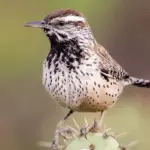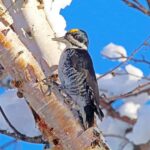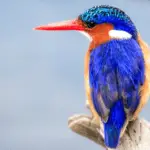As you gaze into the skies of Georgia, you might recall the wise words of ancient Greek playwright Aeschylus, "The falcon cannot hear the falconer." But have you ever wondered what these majestic birds of prey are listening for? Perhaps it's the rustling of leaves as they stalk their next meal. You might assume it's a simple matter of hunting small rodents, but the truth is, falcons in Georgia have a far more diverse and complex diet. From flying insects to aquatic species, their menu is as varied as the state's landscapes. But what exactly do they feast on, and how do their eating habits change with the seasons?
Key Takeaways
- Falcons in Georgia consume a diverse range of prey, including insects, small mammals, birds, reptiles, amphibians, and aquatic species.
- Insects, such as flying insects, ground beetles, grasshoppers, and crickets, are a vital food source, particularly during breeding season.
- Small mammals, including voles, mice, and rabbits, provide essential nutrients for the falcons' survival, and are often hunted using aerial attacks and stealthy approaches.
- Falcons prey on various bird species, including mourning doves, American robins, and northern bobwhites, which inhabit open areas like grasslands and wetlands.
- Urban environments provide falcons with alternative food sources, such as landfills and food scraps, which they exploit as opportunistic feeders.
Insect Prey in Georgia
The diverse insect fauna in Georgia provides a rich source of prey for falcons.
You'll find that flying insects, such as butterflies, moths, and flies, are abundant in the state's skies. These insects are a vital food source for falcons, particularly during the breeding season when they need to fuel their high energy demands.
Ground beetles, which are common in Georgia's agricultural fields and forests, are another important insect prey for falcons.
These beetles are often active at night, making them a suitable target for nocturnal falcon hunts. Falcons have exceptional low-light vision, allowing them to capitalize on this nocturnal insect activity.
In addition to these insects, falcons in Georgia also prey on grasshoppers, crickets, and cicadas.
These insects are often found in open areas, such as meadows and grasslands, where falcons can easily hunt them. By exploiting this diverse range of insect prey, falcons in Georgia are able to thrive in the state's varied landscapes.
Small Mammal Consumption
Falcons in Georgia also consume small mammals, an essential component of their diet.
As a predator, you'll find that they're skilled at exploiting rodent populations, which are abundant in the state's diverse landscapes. These mammals, such as voles, mice, and rabbits, are an important food source, providing essential nutrients for the falcons' survival.
When hunting small mammals, you'll observe that falcons employ a range of strategies, including aerial attacks and stealthy approaches.
Burrow hunting, in particular, is a unique tactic used by these birds. By perching near rodent burrows, falcons can ambush unsuspecting prey as they emerge or scavenge for food. Their exceptional eyesight and agility enable them to pursue and catch rodents in mid-air or within tight spaces.
In Georgia's agricultural areas, falcons often target rodents that infest crops, providing a valuable ecosystem service.
Birds as Falcon Food
Among Georgia's diverse avifauna, you'll find that falcons prey on various bird species, which comprise a significant proportion of their diet.
These bird friends and avian neighbors become potential meals for falcons, which are skilled hunters with exceptional speed and agility. Falcons primarily target birds that inhabit open areas, such as grasslands, fields, and wetlands.
Species like mourning doves, American robins, and northern bobwhites are common prey, as they're abundant and vulnerable to falcon attacks.
Falcons also prey on birds that inhabit urban areas, including pigeons, house sparrows, and European starlings.
These birds often congregate in large numbers, making them an attractive food source for falcons. When hunting, falcons employ stealth and surprise, using their incredible speed to chase down their prey.
They also utilize their exceptional vision to spot potential meals from great distances. By preying on birds, falcons play a crucial role in regulating Georgia's avian populations, maintaining a delicate balance within the ecosystem.
Reptile and Amphibian Diet
Vulnerability lurks in every nook and cranny of Georgia's diverse landscape, where reptiles and amphibians unwittingly become prey for falcons.
You'll find that falcons target snake populations, particularly in areas with dense vegetation and proximity to water sources. These areas provide an ideal environment for snakes to thrive, making them a reliable food source for falcons.
Falcons also prey on lizards, which inhabit a range of habitats across Georgia.
You'll often find lizards basking in the sun on rocky outcrops, logs, or tree trunks, making them an easy target for falcons. The southeastern part of the state, with its warm and humid climate, is particularly conducive to lizard habitats. Falcons take advantage of this, using their exceptional eyesight to scan the terrain for unsuspecting lizards.
When hunting reptiles and amphibians, falcons employ stealth and agility, relying on their speed and agility to catch their prey off guard.
Regional Dietary Variations
Through Georgia's varied regions, you'll encounter distinct dietary adaptations in falcon populations, shaped by the unique characteristics of each area.
Regional preferences are influenced by geographic factors, such as climate, topography, and vegetation, which affect the availability and distribution of prey species.
- In the coastal regions, where salt marshes and wetlands dominate, falcons tend to prey on aquatic species like fish and crustaceans.
- In the Piedmont region, characterized by rolling hills and forests, falcons feed on terrestrial species like rodents and reptiles.
- In the mountainous regions, where elevations are higher and forests are more dense, falcons adapt to preying on species like rabbits and hares.
- In the urban and suburban areas, human-altered landscapes influence falcon diets, with a focus on pigeons, doves, and other urban-adapted species.
These regional dietary variations are a testament to the adaptability of falcons in Georgia, as they exploit the resources available to them in their respective environments.
Seasonal Changes in Prey
Frequently, falcon populations in Georgia adjust their diets in response to seasonal changes, which affect the availability and behavior of prey species.
As you explore the state's falcon populations, you'll notice that their diets shift in tandem with the changing seasons. During the spring and summer months, you'll find that falcons in Georgia prey on species that are abundant during their breeding seasons, such as nesting birds and juvenile rabbits.
In contrast, during the fall and winter, falcons adapt to the decline in prey abundance by targeting species that are more active during these periods, like migratory birds and rodents.
Migration patterns also play a significant role in shaping the falcon's diet. For instance, when migratory songbirds arrive in Georgia during the spring, falcons capitalize on this influx of prey, exploiting the abundance of these species to fuel their own breeding and nesting activities.
Conversely, when these songbirds depart during the fall, falcons shift their attention to more resident prey species, such as doves and quail. By understanding these seasonal changes in prey, you can better appreciate the adaptability and resourcefulness of Georgia's falcon populations.
Falcons and Human Food Waste
You'll find that urban environments provide falcons with alternative food sources, which can significantly impact their scavenging behavior.
As you explore the relationship between falcons and human food waste, you'll discover that landfills, in particular, have become a reliable feeding ground for these birds.
Urban Food Sources
What role do urban landscapes play in sustaining falcon populations in Georgia, particularly when it comes to human food waste?
As you explore the connection between falcons and human food waste, you'll find that urban areas provide a unique opportunity for these birds of prey to thrive.
Urban food sources, such as food scraps and city dumps, can be a significant contributor to a falcon's diet.
Falcons are opportunistic feeders, and they've adapted to exploit human resources.
You'll often find them scavenging for food in urban environments, where human activity provides a steady supply of edible waste.
Some of the key urban food sources for falcons in Georgia include:
- Landfills and city dumps, which provide a constant supply of organic waste
- Food scraps discarded in public spaces, such as parks and plazas
- Unsecured trash cans and dumpsters behind restaurants and commercial buildings
- Roadkill and other carrion found on urban streets and highways
Food Scavenging Behavior
Scavenging for food in urban landscapes, falcons have honed their skills to capitalize on human food waste, exploiting the abundance of discarded edible resources. As you observe these birds of prey in Georgia, you'll notice their adaptability in exploiting human-generated food sources. Falcons have developed a keen sense of smell, allowing them to detect and scavenge for food in landfills, dumpsters, and streets.
| Food Scavenging Behavior | Description |
|---|---|
| Food caching | Falcons store food in hidden caches for later consumption, often using urban structures as hiding spots. |
| Scavenger roles | Falcons assume scavenger roles, feeding on carrion and human-discarded food waste. |
| Opportunistic feeding | Falcons take advantage of readily available food sources, including injured or weak animals. |
| Kleptoparasitism | Falcons steal food from other predators, such as owls or hawks. |
| Urban foraging | Falcons forage for food in urban areas, exploiting human-generated food sources like trash and leftovers.
Landfill Feasting Habits
Falcons in Georgia have become adept at exploiting human food waste, and landfills have become a significant source of sustenance for these birds of prey.
As you observe the landfill scavenging habits of these birds, you'll notice they're attracted to the abundance of food waste. Landfills provide an easily accessible feast, with a constant supply of organic matter.
You might wonder how they thrive in this environment, but it's essential to understand that their adaptability is a result of human actions.
Some key aspects of falcons' landfill feasting habits include:
- Scavenging behavior: Falcons have developed a unique feeding strategy, where they swoop down to grab food scraps from the landfill surface or follow other scavengers to steal their finds.
- Food selection: These birds of prey primarily target high-calorie food waste, such as meat, fat, and other nutrient-rich materials.
- Waste management impact: The presence of falcons in landfills highlights the inefficiencies in waste management systems, which allow food waste to accumulate and attract wildlife.
- Ecological implications: Falcons' reliance on landfills can have long-term consequences on their population dynamics, behavior, and ecology, as they become increasingly dependent on human food waste.
Aquatic Prey in Georgia Waters
You'll find that falcons in Georgia have access to a variety of aquatic prey, including fish in freshwater lakes, where species like largemouth bass and bluegill are abundant.
Along coastal areas, you'll encounter birds like shorebirds and marsh birds, which can become prey for these birds of prey.
As you explore Georgia's waters, you'll discover the diverse range of aquatic prey that supports the state's falcon population.
Fish in Freshwater Lakes
Across Georgia's freshwater lakes, a diverse array of fish species thrive, providing a vital food source for apex predators like falcons.
As you explore these lakes, you'll find a variety of fish species that are sought after by falcons. Freshwater fishing in these lakes is a popular activity, and the abundance of fish makes it an ideal hunting ground for falcons.
Some of the most common fish species found in Georgia's freshwater lakes that falcons prey on include:
- Largemouth bass: a popular game fish that's often found in shallow waters with abundant vegetation
- Bluegill: a small but energetic fish that's common in lakes and ponds
- Channel catfish: a bottom-dwelling fish that's often found in areas with structural features like rocks or sunken logs
- Crappie: a species of fish that's prized for its flavor and is often found in schools near structure or vegetation
These fish species are an essential part of the aquatic ecosystem, and falcons play a crucial role in regulating their populations.
Birds Near Coastal Areas
Georgia's coastal areas, where freshwater rivers meet the ocean, form a unique interface that attracts a diverse range of bird species.
You'll find that falcons in these areas have adapted to exploit the rich aquatic resources. Coastal foraging is a crucial aspect of their survival, and they've developed specialized techniques to catch prey in this environment.
As you observe the coastal ecosystem, you'll notice that falcons engage in seaside scavenging, capitalizing on the abundance of fish and crustaceans that inhabit the shoreline.
They've learned to hover above the waves, scanning for unsuspecting prey, and then dive-bombing into the water with incredible speed and agility.
In Georgia's coastal waters, you'll find a variety of aquatic prey, including mullet, menhaden, and shrimp.
Falcons have developed a keen eye for spotting these species, and their exceptional flying skills allow them to pursue and catch them with ease.
Frequently Asked Questions
Do Falcons in Georgia Scavenge for Carrion Like Other Birds of Prey?
You'll find that falcons in Georgia don't typically scavenge for carrion like other birds of prey, as they're not inclined towards scavenger behavior; instead, they focus on hunting live prey, and roadside feeding doesn't significantly influence their diet.
How Do Falcons Hunt in Urban Environments With Limited Natural Prey?
You'll find that 75% of urban falcon nests thrive in cities with limited natural prey, thanks to their remarkable urban adaptation. They employ prey substitution, targeting pigeons, doves, and even rats, demonstrating their resourceful hunting prowess in these environments.
Can Falcons Be Trained to Hunt Invasive Species in Georgia?
You can explore training falcons to hunt invasive species in Georgia, working with experienced falcon handlers to develop targeted hunting strategies that support wildlife conservation efforts and mitigate ecosystem disruption.
Do Falcons in Georgia Have Any Natural Predators to Worry About?
You'll find that falcons in Georgia have few natural predators to worry about, as they've adapted predator avoidance strategies, such as nesting in remote areas, to ensure habitat security and reduce vulnerability to potential threats like owls, hawks, and coyotes.
Can Falcons in Georgia Be Affected by Lead Poisoning From Hunting?
You'll find that falcons in Georgia can indeed be affected by lead poisoning, primarily through scavenging carcasses contaminated with lead bullet fragments from hunting practices, which increases their lead exposure and risk of toxicity.
Conclusion
You've witnessed the staggering diversity of falcons' diets in Georgia, where they feast on an astonishing array of insects, from butterflies to crickets, and small mammals like voles and rabbits. They swoop down on unsuspecting birds, reptiles, and amphibians, and even dive into coastal waters for fish and crustaceans. With their adaptability to regional and seasonal changes, and their opportunistic scavenging for human food waste, it's no wonder these birds of prey are the ultimate predators in Georgia's skies.




